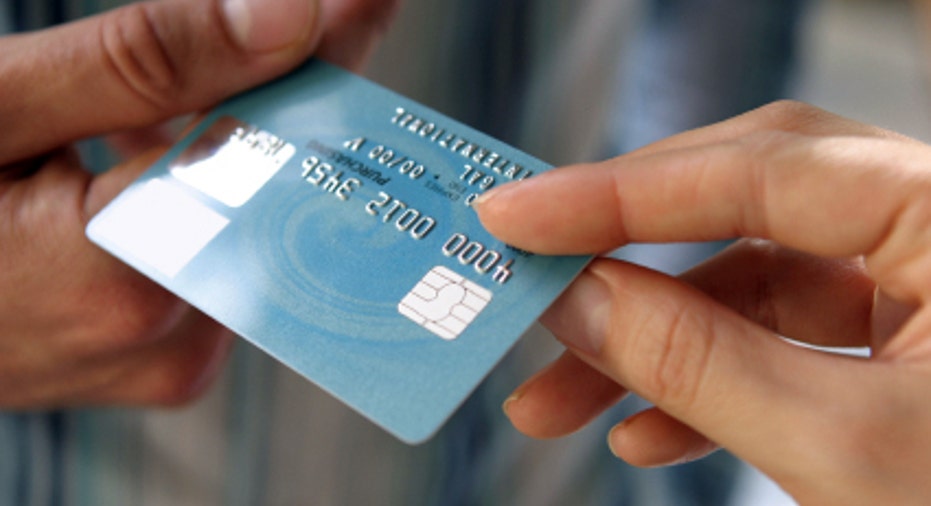The Thief Behind the Counter

You hand your Visa to the waiter to pay for your dinner and he disappears with your credit card. He returns a few minutes later with your bill. You sign the credit card receipt and leave.
You don't think anything of it until the end of the month when you receive your Visa statement, and you notice a number of charges at stores and restaurants that you know you did not make.
You had no idea that the waiter stole your credit card information in the few minutes it took for him to run the legitimate transaction…and that he then went on a spending spree courtesy of your credit card.
Paying with credit cards is convenient, but it can also raise your risk of credit card fraud if the sales clerk is unscrupulous enough to steal your account number. Take these steps to prevent store employees from having a field day with your plastic.
You're protected, your credit's not
The good news is that federal law protects you from owing more than $50 per credit card for any fraudulent charges as long as you report them immediately, and most credit card companies even waive that amount.
The bad news is until the fraudulent charges get straightened out, and it can take a while, it can look as though you owe thousands on your Visa and your good credit could be in jeopardy. "If you are the victim of credit card fraud, you could spend a lot of time undoing the damage," says Philip Blank, senior security analyst at Javelin Strategy & Research.
Credit card fraud costs the average consumer $631 a year, according to the most recent Javelin survey. The U.S. Secret Service reports credit card fraud is an $8.58-billion problem in America.
How to prevent credit card fraud
So how do you prevent your credit card information from being stolen by waiters, retail clerks and others behind the sales counter?
The best thing you can do, Blank says, is set alerts with your credit card issuer so that every time someone charges your card, you receive an email or text message with the details of the transaction. If you don't recognize or haven't authorized the charge, you can call your card issuer immediately and stop the transaction from going through.
Consider setting an alert for all charges,or for charges to your credit cards that are over a certain amount.
"That's the best way to be aware of unusual activity as quickly as possible," Blank says.
If your credit card or financial institution doesn't provide that safety feature (and even if it does), you should:
- Monitor your accounts regularly. With most credit card accounts, you can go online and check your balances and transactions. You should check your accounts every week, if not every day. Bookmark the site and it won't take but a minute or two. Don't wait for your monthly statements. It's important to identify fraudulent transactions, should there be any, sooner rather than later, Blank says.
- Never let your credit cards out of your sight. Tell the waiter you will take your credit card to the cash register yourself to pay. At the store, when you hand your credit card to the sales clerk to pay for what you are buying, don't take your eyes off your card or the clerk. Don't get distracted by other items at the counter or people in the store - it only takes a second for the clerk to slip away and skim your account numbers.
- Don't leave your card lying around. Don't let the waiter leave your card on the table if you're not there because you got up to go to the restroom. Also, don't leave your receipts lying around, because they could have your name and account numbers on them and could be easily stolen.
You can't be too careful
At the very least, protect against identity theft by reviewing your monthly statements - whether you get them online or by mail - carefully. Open the statement promptly. Make sure you recognize all the charges and the amounts. Check them against your receipts.
Call the credit card company immediately if you see charges that could be fraudulent. Most card issuers have toll-free numbers and 24-hour service to deal with such issues. Remember, you can be held responsible, Blank says, if you don't notify your credit card issuer of fraudulent charges as soon as you learn of them.
The original article can be found at CardRatings.com:The thief behind the counter



















